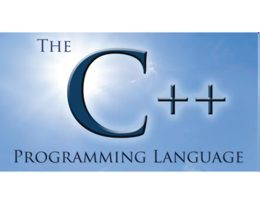| C++ 14 Approved |
| Written by Alex Denham | |||
| Friday, 22 August 2014 | |||
|
The ISO C++14 draft international standard has been approved and will be published later in the year. This is the fastest turnaround for a new standard in the history of C++, according to Herb Sutter in his announcement on the ISOCPP blog about the approval. C++ creator Bjarne Stroustrup also says that the standard is historic because multiple substantially or entirely conforming implementations (modulo bugs) of C++14 were already available at the time C++14 was published. He states: “That has never happened before for a C++ (or I believe C) standard. For C++98, the delta between publishing the standard and the first fully conforming implementation being available was about 5 years. For C++11, it was two years. For C++14, the two have merged and we have achieved ‘time on target.’” There are still some minor tweaks to be carried out – things like spelling typos and accidentally dropped words – but after that the document will be transmitted to ISO for publication this year as the brand new International Standard ISO/IEC 14882:2014(E) Programming Language C++. There are a large number of listed improvements to C++, though all of them are fairly minor, and many of the changes are refinements to features added in C++11. Lambdas (introduced in C++11) can now have auto type parameters rather than having to be declared with concrete types; The ability to deduce the return type of a function based on the type of expression passed to the return statement has been extended to all functions; in C++11 it was limited to lambda functions; you will now be able to create variables that are template – until now this was limited to functions, classes and type aliases. Other improvements add support for binary literals, aggregate member initialization, and fewer restrictions on constexpr-declared functions. You can read a more complete list of changes in the working draft.
More InformationRelated ArticlesIn Praise Of C++ Bjarne At ICPC Why your next language better be C++ The Irrelevance of the New C++ Standard Programming: Principles and Practice Using C++, 2nd Ed (book review)
To be informed about new articles on I Programmer, install the I Programmer Toolbar, subscribe to the RSS feed, follow us on, Twitter, Facebook, Google+ or Linkedin, or sign up for our weekly newsletter.
Comments
or email your comment to: comments@i-programmer.info <ASIN:0321992784> <ASIN:0321958314> |
|||
| Last Updated ( Friday, 22 August 2014 ) |


